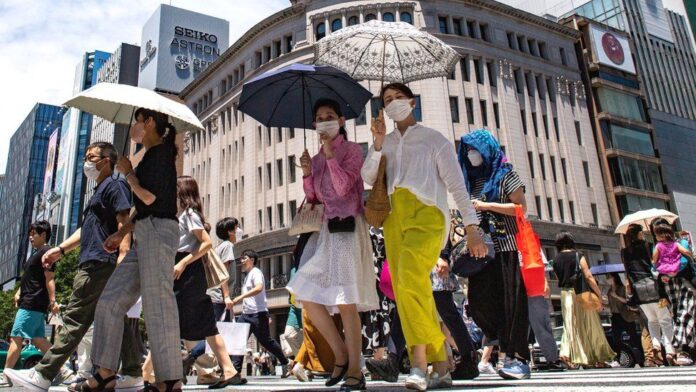The Japanese government has urged people in Tokyo and the surrounding area to use less electricity on Monday as the country braces for a heatwave.
The Ministry of Economy, Trade, and Industry expects “exceptional” demand for electricity this afternoon, local time.
To prevent heatstroke, it was advised to turn off unnecessary lights while keeping the air conditioning on.
For weeks, authorities have been issuing warnings about a power shortfall as the temperatures rise.
The weekend saw a record 40.2C in Isesaki, a city northwest of the capital, while temperatures in urban Tokyo were above 35C. In Japan, June had the highest measured temperature.
When daily highs are typically below 30 degrees Celsius in June, summer in Japan officially starts.
The ministry forecast that the additional electricity generating capacity in Tokyo and eight neighbouring prefectures would decrease by 3.7 per cent on Monday afternoon in a statement issued on Sunday. A 3 per cent buffer is required for a stable power supply, according to it.
The government encouraged people to turn off unnecessary lights for three hours beginning at 15:00 Tokyo time, in addition to “properly employing an air conditioning and drinking during hot hours” (07:00 BST).
The nation’s electricity supply has been constrained ever since certain nuclear power reactors’ operations had to be paused in March due to an earthquake in Japan’s northeast.
Authorities have also shut down several old fossil fuel plants to lower carbon dioxide emissions.
These issues, combined with an increase in electricity usage, have led to a power crunch.
Earlier this month, the Japanese government urged citizens and companies to consume less electricity throughout the summer.
According to the Japanese public broadcaster NHK, as of Sunday afternoon, 46 people had been brought to hospitals in Tokyo for what is thought to be heatstroke.
It further stated that a 94-year-old man believed to have died from the ailment lived in the neighbouring city of Kawagoe.
Following a request from Australian authorities for homeowners in New South Wales, which contains Sydney, the country’s largest metropolis, to switch off their lights in the event of an energy crisis, the statement was made. Restrictions on the Australian wholesale energy market were loosened late last week.

















